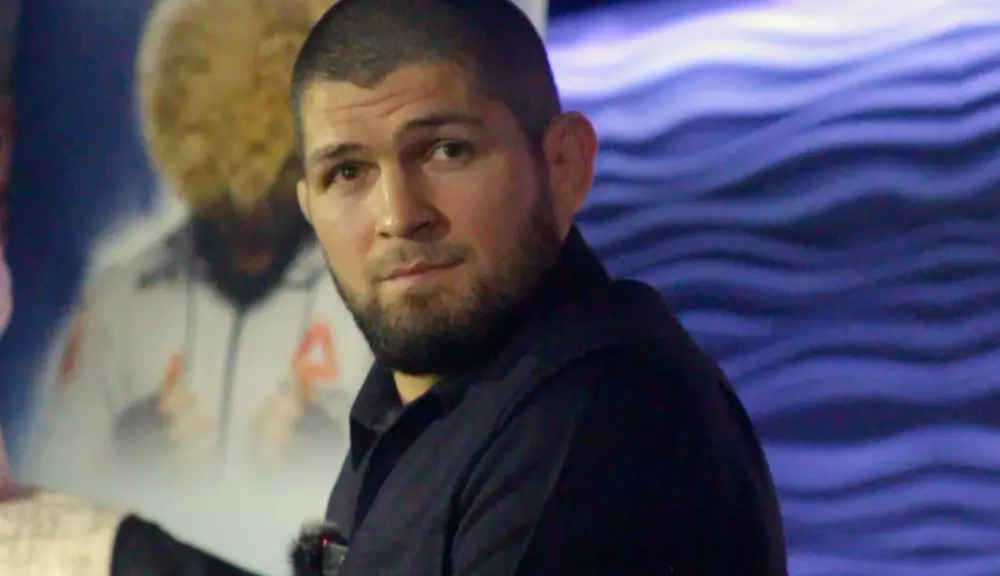Khabib Nurmagomedov, a towering figure in the world of mixed martial arts, recently expressed his views regarding the rising star Ilia Topuria’s potential move to the lightweight division. Currently reigning as the UFC featherweight champion, Topuria boasts an impressive record of 16 wins without a loss. His flirtation with the prospect of transitioning to lightweight, particularly as he sets his sights on a fight with former champion Charles Oliveira, has sparked considerable interest. Nurmagomedov believes that if Topuria can defeat such a formidable opponent, he could be deserving of a title opportunity in the 155-pound division, a stance that reveals much about the dynamics of fighter rankings and championship opportunities.
However, Nurmagomedov makes it clear that he does not support the idea of Topuria receiving an immediate title shot upon his ascent to lightweight. Having already seen his protégé, Islam Makhachev, navigate criticism over his title defenses, Nurmagomedov emphasizes the need for any fighter—Topuria included—to prove themselves distinctly within their new weight class before being considered for a championship match. Makhachev, with his own successful reign at lightweight, faced skepticism for his victories over previous featherweight champion Alexander Volkanovski. This scenario highlights the often-contentious nature of fight matchmaking, where the merits and criteria for title shots can provoke debate among fans, analysts, and fighters alike.
The crux of Nurmagomedov’s argument is that Topuria must first demonstrate his capability in the lightweight division before leaping into title contention. “Without fighting at 155? No, I don’t agree,” he states, illustrating his belief that competition at a new weight class should involve significant challenges. The UFC is notorious for its layered matchmaking system, and fighters do not simply ascend the ranks without proving their mettle. For Topuria, a victory over a heavyweight like Oliveira or Dustin Poirier—notably seasoned fighters—would serve as an effective litmus test for his preparedness for the title shot.
As Nurmagomedov noted, if Topuria can indeed defeat an elite competitor like Oliveira, he would proudly support his quest for a title shot against Makhachev. It underscores the competitive nature of the lightweight division, which currently features formidable opponents, each vying for the coveted championship. Makhachev’s next title defense against Arman Tsarukyan will further showcase the shifting tides and rivalries prominent in this fiercely contested Weight class. The intersection of these fighters’ paths is not just about individual match-ups but rather represents the ever-evolving narrative of dominance within the UFC’s divisions.
While Khabib Nurmagomedov holds a certain respect for Ilia Topuria’s skills and ambitions, he demands a rigorous demonstration of fighter worthiness within the lightweight division. This essential proof of capability—potentially through victory over a respected opponent—will determine whether Topuria can genuinely contend for the title. The need for fairness and competitive integrity feeds into the broader structural logic of championship bouts, ultimately leading to a more engaging and robust sporting spectacle. As the UFC landscape continues to evolve, the journey to goodness in the octagon remains a rigorous but thrilling endeavor, fueled by the aspirations of fighters like Topuria.

